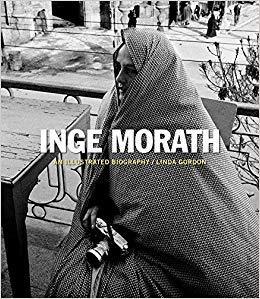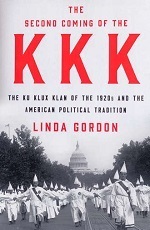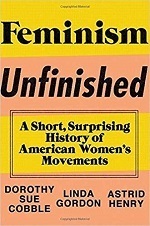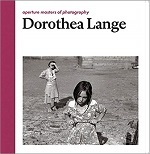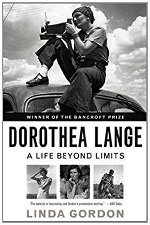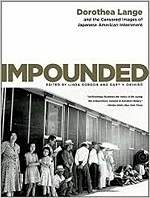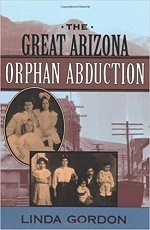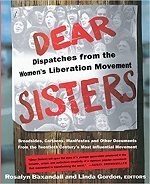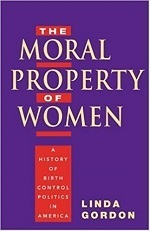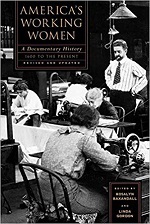Books
Inge Morath: An Illustrated Biography
The life of one of the first women to join the famous Magnum agency.
The late playwright Arthur Miller, speaking of his wife Inge Morath, said "She made poetry out of people and their places over half a century." Morath's curiosity, compassion, and bravery show vividly in this biography featuring stunning images from every stage of her career. Biographer Linda Gordon presents Morath traveling across the globe, often as a woman alone, quietly but firmly defying the conventions for what was appropriate for women at the time. Her photographs show her cosmopolitanism, which arose from her love of literature, her fluency in many languages, and her revulsion against Hitler's Germany, where she spent her teenage years. Her respect for all the world's cultures, from Spain to Iran to China, made her a kind of visual ethnographer. One of the first women to join the Magnum collective, Morath was a superb portraitist, particularly drawn to artists, such as painter Saul Steinberg, sculptor Louise Bourgeois, and writer Boris Pasternak. She worked mainly in black-and-white but also used color film exquisitely, even early in her career. Through Magnum assignments to document film sets she met Arthur Miller and their subsequent marriage lasted for forty years. Despite a variety of subject matter, Morath's work is unified by an intimacy and comfort with the world's many cultures. Truly a citizen of the world, her images are simultaneously universal and personal.
______________________________________________________
The Ku Klux Klan of the 1920s and the American Political Tradition
By legitimizing and intensifying bigotry, and insisting that only white Protestants could be "true Americans," a revived and mainstream Klan in the 1920s left a troubling legacy that demands a reexamination today.
______________________________________________________
A Short, Surprising History of American Women's Movements
Eschewing the conventional wisdom that places the origins of the American women's movement in the nostalgic glow of the late 1960s, traces the beginnings of this seminal American social movement to the 1920s, in the process creating an expanded, historical narrative that dramatically rewrites a century of American women's history. Also challenging the contemporary "lean-in," trickle-down feminist philosophy and asserting that women's histories all too often depoliticize politics, labor issues, and divergent economic circumstances, Dorothy Sue Cobble, Linda Gordon, and Astrid Henry demonstrate that the post-Suffrage women's movement focused on exploitation of women in the workplace as well as on inherent sexual rights. The authors carefully revise our "wave" vision of feminism, which previously suggested that there were clear breaks and sharp divisions within these media-driven "waves." Showing how history books have obscured the notable activism by working-class and minority women in the past, provides a much-needed corrective.
______________________________________________________
Dorothea Lange: Aperture Masters of Photography
Dorothea Lange (1895-1965) documented rural poverty for the federal Resettlement Administration and Farm Security Administration from 1935 to 1939. Her powerful images--from migrant workers in California fleeing the "dustbowl," to struggling Southern sharecroppers-- became icons of the era. She later photographed Japanese Americans in internment camps during World War II and traveled throughout Europe and Asia. This book presents 42 of the greatest images from throughout Lange's career, including some of her work done abroad. She possessed the ability, as she put it, to photograph "things as they are" and through this her photographs give us "more about the subjects than just the faces." It is no wonder that Edward Steichen called her the greatest documentary photographer in the United States.
"Lange's work defines an era of destitution and drought, and still resonates even now. This is the perfect introduction to one of the world's greatest photojournalists."--Practical Photography, from a review of the original edition.
______________________________________________________
Dorothea Lange: A Life Beyond Limits
Winner of Los Angeles Times prize for best biography
Winner of Bancroft prize for best book in US history
Winner of National Arts Club prize for best arts writing
We all know Dorothea Lange's iconic photos―the Migrant Mother holding her child, the shoeless children of the Dust Bowl―but now renowned American historian Linda Gordon brings them to three-dimensional life in this groundbreaking exploration of Lange's transformation into a documentarist. Using Lange's life to anchor a moving social history of twentieth-century America, Gordon masterfully re-creates bohemian San Francisco, the Depression, and the Japanese-American internment camps. Accompanied by more than one hundred images―many of them previously unseen and some formerly suppressed―Gordon has written a sparkling, fast-moving story that testifies to her status as one of the most gifted historians of our time. Finalist for the Los Angeles Times Book Prize; a New York Times Notable Book; New Yorker's A Year's Reading; and San Francisco Chronicle Best Book.
______________________________________________________
In 1942 the US interned 120,000 Japanese Americans. None had been charged with any crime, and approximately 2/3 were US citizens, yet they were imprisoned for the length of the war without hearings. Although the Army hired her, they impounded her photographs, considering them too critical.
from the reviews:
"Lange offers us a careful demonstration of the way prejudice, masked by patriotism, can lead to enormous injustice." Chicago Tribune
"...as profoundly human as it is heartbreaking ..." Austin Chronicle
"This book is important... for the light it throws on a shameful moment in American history and for the light it throws on Dorothea Lange." Japan Times
"... These photographs are deeply subversive, showing the quiet dignity of individuals and families ..." Columbia Journalism Review
"... offers a crucial insight into the structure of Lange's photographic project ..." Women's Review of Books
"... a testament to the historical and cultural significance of the photographs ... and the insight with which the editors probe their history." Journal of Asian Studies
______________________________________________________
The Great Arizona Orphan Abduction
In 1904, New York nuns brought forty Irish orphans to a remote Arizona mining camp, to be placed with Catholic families. The Catholic families were Mexican, as was the majority of the population. Soon the town's Anglos, furious at this "interracial" transgression, formed a vigilante squad that kidnapped the children and nearly lynched the nuns and the local priest. The Catholic Church sued to get its wards back, but all the courts, including the U.S. Supreme Court, ruled in favor of the vigilantes.
Winner of the Bancroft prize for best book in US history
Winner of the Beveridge prize for best book in the history of the Americas
from the reviews: "… emotionally gripping ... " " a good read…. a fine example of "nonfiction narrative" or "narrative nonfiction." NYTimes
______________________________________________________
Dispatches from the Women's Liberation Movement, with Rosalyn Baxandall
Today's women are so comfortable in their authority that they often forget to credit the women's liberation movement of the 1960s and '70s for paving the way—from the kitchen to the boardroom, from sexual harassment to self-defense, from cheerleading on the sidelines to playing center on the team. Distinguished scholars and active participants in the movement, Linda Gordon and Rosalyn Baxandall have collected a colorful array of documents—songs, leaflets, cartoons, position papers—that illustrate the range of people, places, organizations, and ideas that made up the movement. Dear Sisters chronicles historical change in such broad areas as health, work, and family, and captures the subtle humor, unceasing passion, and overwhelming diversity that defined the women's liberation movement.
from the reviews:
"As feisty and exciting as the women's liberation movement itself, Dear Sisters is full of surprises." Linda K. Kerber
"Dear Sisters will be a boon to historians, and a pleasurable, inspiring read for everyone." Howard Zinn
______________________________________________________
Heroes of Their Own Lives: The Politics and History of Family Violence
Winner of Joan Kelly prize for best book in women's history
Responding to the "discovery" of child abuse in the 1870s, child-protection agencies were soon pulled ito cases of wife-beating and sexual abuse as well. Heroes of Their Own Lives tells the story through many actual case histories, and thereby promotes understanding of current family-violence problems.
______________________________________________________
The History of Birth Control Politics in America
Every known society has used some form of reproduction control, but in the last 150 years the practice became contested, because it evokes fundamental disagreements about women's rights and sexual freedom. This book remains the definitive historical explanation of that controversy.
from the reviews:
"Myriad brilliant books and articles on the history of contraception and abortion have appeared ... but none offers as comprehensive ... wide-ranging and invigorating a historical analysis ..." The Historian
"not merely an historical interpretation of the politics of birth control, but a history of sexuality ..." Archives of Sexual Behavior
"... an invaluable resource ...reminds us that women's bodies remain battlefields crossed by the ideological and property relations of the societies in which we live." Science and Society
______________________________________________________
America's Working Women: A Documentary History, 1600 to the Present
With an expanded focus on women from all racial and ethnic backgrounds and regions, America's Working Women grounds us in the battles women have fought and the ones they are in the process of winning.
